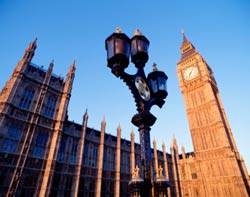The government recently published its white paper on open data,with the newly-created Open Data User Group having met to discuss the next phase.But despite these moves,campaigners are worried that plans to create a£16bn stimulus to the economy through open data are being derailed.
Crucial to open data campaigners is the release of core government datasets,the information which links all other data together in a meaningful way–such as the Ordnance Survey's postal address register.

Chris Taggart,CEO and co-founder of digital business OpenCorporates,praised government moves to release a white paper,but said there was a notable gap in its failure to address the issue of core dataset releases."This issue has not been tackled and hasn't really progressed since the November statement,"he said.
"We were hoping to see the next bit opened up.Without the core reference data we can't make connection between things,all other data depends on it.Without access to that,we won't see the innovation that was promised.We won't see the transformation of government data that we want and have the opportunity to have."
Taggart says there are three main core datasets,which include:the full release of Companies House information;the Ordnance Survey address database and the Post Office postcode address database.
Government bats around dataset question
But while a number of departmental commitments to open data were released with the strategy,a Cabinet Office spokeswoman said that questions around the release of core datasets would be best answered by individual departments.
However,a spokesman from the Ordnance survey said that decisions around core data releases would be addressed by the newly appointed Data Strategy Board.
Jonathan Raper,founder of location services company Placr,believes the issue is being batted around and says ministerial intervention will be required in order to push through any further significant data releases.The reforming of government agencies is the key question,he says.
The Public Data Group,which acts as an umbrella group to the trading funds,and Data Strategy Board,set up to advise government on which data to set free,fall under the remit of the Department for Business,Innovation and Skills(BIS).
"Unless Vince Cable makes a decision,there are not going to be any further releases.
"Cable rightly says he is frustrated with the banks for stalling growth with a lack of lending,but there is something his department can do to help digital businesses by releasing data.It is ironic that the BIS is holding back business."
Most transport data has been opened up and Raper's company is releasing apps for local government and APIs,but he says businesses working in other fields are being impeded by the reluctance to release data.
"There will be no more timetables without a political decision,"Raper said.
The economics of open data
He believes the argument that data can't be released without great expense to departments is false.Much of the revenue generated from agencies such as the Met Office and Ordnance survey comes from internal trading within government(83%and 58%respectively),so is effectively money going around in a circle,he says.
Raper is also sceptical about the Open Data User Group(ODUG),which met for the first time last week to advise the government on what public sector information should be released as open data
"We,along with others in the open data community,are boycotting the ODUG,as we don't see it as something useful–not useful because it's not being led by the community,"he said.
"We have difficulty in understanding what they are trying to achieve.They appear to be an advisory group to an advisory group[the Data Strategy Board]."
However,some campaigners believe a certain amount of positive progress has recently been made by the government.While OpenCorporates'Taggart says not much new has come from the white paper,he believes its intention to create a development engagement strategy is a step in the right direction.
Emer Coleman,deputy director of digital engagement at the Government Digital Service(GDS),and pioneer of open data at The London Data Store,welcomed the move.
"I'm pleased about seeing the Developer Engagement Strategy,which is being led by GDS.It's an important commitment that has been absent in the past,and will provide active engagement with premier users and developers looking at building businesses,"Coleman said.
It may be too early to judge whether the Data Strategy Board has the teeth to drive through the open data revolution,or if a top-down action from the likes of Maude and Cable will be needed to achieve further releases of meaningful information.
Certainly the government's recently published information on departmental open data timelines is an encouraging sign.
But if we are to believe its intention to create a£16bn market place from open data,it will have to put its money where its mouth is when it comes to core datasets.





